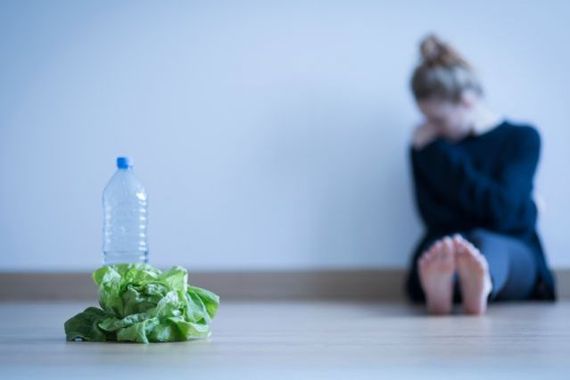No one would choose to have an eating disorder. You wouldn't make the choice to lose all of your friends because you can't eat at restaurants, to exercise obsessively despite pain and injuries, or to binge eat until you feel like your stomach is going to burst.
Eating disorders are mental illlnesses that are often triggered by a combination of genetic and environmental factors. Further, they are a maladaptive coping strategy for numbing uncomfortable feelings, maintaining a false sense of control, and for attempting to cope with past trauma. Eating disorders are not a choice, but you can choose to work towards recovery. The following are four reasons to choose recovery each and every day.
1. To fully experience your feelings.
This one might seem scary at first. After all, an eating disorder can be an effective way to numb many of your feelings. You wouldn't be using these negative coping strategies if they didn't serve some kind of purpose for you. However, you cannot selectively numb emotions. Using negative behaviors to avoid your feelings may help you to experience less sadness and anger-however it will also stop you from feeling happiness and joy.
Part of the amazing thing about being a human being is that we are able to have a wide range of emotions. Experiencing sadness and hurt is part of what makes it so incredible to feel joy and happiness. However, the deeper you are into your eating disorder, the more disconnected you become from yourself and your feelings.
Choosing recovery will enable you to connect to feelings that you may have kept buried for some time. It will allow you to experience a wide range of feelings, which is truly one of the incredible gifts that we are given in life.
2. To have meaningful relationships.
As humans we are wired for social connection. It was evolutionarily advantageous to travel in packs so that we could fight off any danger. Therefore it makes sense that we were biologically designed to crave social support.
Part of what makes eating disorders so devastating, is that they are truly disorders of isolation. When you are intensely struggling with your eating disorder, it often becomes your main relationship. However, your eating disorder is an abusive and controlling partner whose goal is to keep you separated from your loved ones.
Lizzie Elsberg, a social worker and individual in recovery from an eating disorder, exemplified this point when she stated,
When I was really sick, my only real relationship was with my eating disorder. Friends and family always came second. It may sound selfish, but it is the nature of the disease...It leaves very little room for anybody else. I will say that I have wonderful friends and a great family who stood by me through everything. However, when I was sick, all those relationships revolved around, well, me being sick. Now, in recovery, my relationships are so much richer and deeper.
Breaking up with your eating disorder will allow you to make room in your life for the relationships that matter to you. Your eating disorder may feel like your best friend, but that is a false illusion. In reality, it is standing in the way of you building authentic, meaningful, connections -- which I believe is one of the most important aspects of life.
3. To feel your world expand.
When you are struggling with an eating disorder, your life is often reduced to obsessing about food, calories, and weight. Choosing recovery will allow you to discover what your true passions and interests are outside of food and exercise.
Lizzie Elsberg shared her view on this when she stated,
Choosing recovery has undoubtedly 100% changed my life. When I was sick, my world was food, exercise, and the scale; there was no room for anything else. Today, I am in my final year of my MSW program; work with kids with special needs, and intern at a psychotherapy office. I have a pug, Sophie, who I adore, and wonderful friends and family to hang out with.
At the end of your life, it is unlikely that you will be reminiscing about the gym classes that you attended or beating yourself up over the cookies that you ate. Choosing recovery enables you to begin to focus on the things that really matter, rather than masking your true feelings with your obsession around food and weight.
4. To be a healthy role model.
By choosing recovery you can work towards becoming a healthy role model to others. Think about the people that you can inspire by sharing your story of struggle-and ultimately triumph over your eating disorder. True strength is not restricting, binging, or over-exercising-rather it choosing to nourish your mind and body, despite what the eating disorder voice may be telling you to do.
Lizzie Elsberg exemplified this point when she said,
Looking back, my experience with my eating disorder was horrific, but it has also instilled me with compassion and empathy unlike I have ever had before. I can't change my past, but I can use it to change other people's lives, and that is exactly what I plan to do.
If you are struggling with an eating disorder, it is important that you reach out for help. No one should have to fight this battle alone and seeking support is a sign of strength. Developing an eating disorder is not a choice, but it is never too late to choose recovery.
This article was previously featured on PsychologyToday.com
__________________________
If you're struggling with an eating disorder, call the National Eating Disorder Association hotline at 1-800-931-2237.
